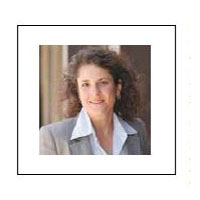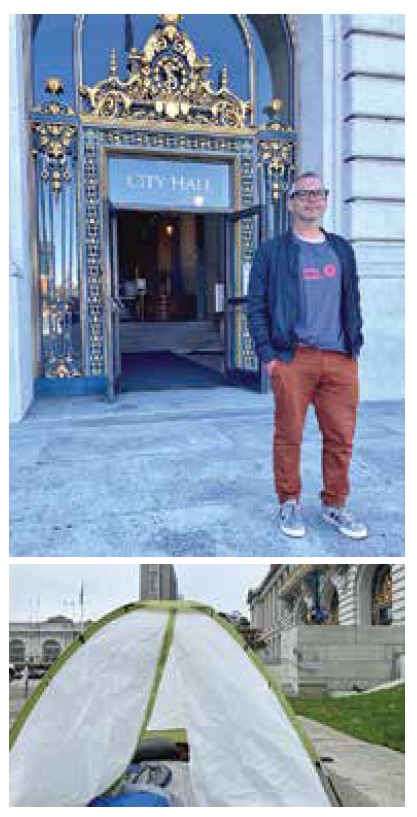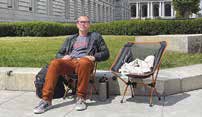
By Louise “Lou” Fischer–
In addition to poutine (french fries with gravy and cheese curds), Timbits (doughnut holes), loonies and toonies ($1 and $2 coins), free healthcare, and a hunky leader of the country, what does Canada have that we don’t? The answer is: “Safe Consumption Sites” (SCS), otherwise known as “Overdose Prevention Sites.”
As of January 2021, there are 37 operating in Canada, and our neighbor to the north is not the only country that is shaming us. According to the National Harm Reduction Coalition, there are more than 100 SCS located in over 60 cities in 11 countries worldwide including Germany, the Netherlands, Switzerland, Spain, Canada, and Australia. In the United States—the ”Olympic Gold winner” of the highest drug-related mortality rate in the world, according to the United Nations’ World Drug Report—the use of SCS for addiction support is against federal, state, and local laws. A few weeks ago, my buddy and current Alice B. Toklas LGBTQ Democratic Club Co-Chair, Gary McCoy, hit his “mad as hell and not going to take it anymore” moment. He staged a hunger strike at City Hall and vowed not to leave (or eat) until elected officials agreed to look into declaring a State of Emergency to implement SCS and address the body count of over 1000 overdose deaths in San Francisco since the start of the pandemic (nearly twice the number of COVID-19 deaths.) He achieved his goal after 60 hours; District Supervisor Matt Haney agreed to introduce a resolution to urge Mayor Breed to declare a public emergency and authorize SCS once the board returns from recess after September 7.

Gary’s story of redemption from homelessness, drug addiction, and stints in jail to serving as a staffer for multiple elected officials is inspiring. Until about 10 years ago, Gary, 43, suffered from a severe addiction to methamphetamine and barely escaped being an overdose statistic himself. Through the support of then-Supervisor Scott Wiener, who saw the potential in a self-declared “HIV-positive, former drug addict,” Gary found a home and employment in San Francisco’s political community as a staffer to multiple Supervisors, and until recently as a senior aide in the district office of Speaker of the House Nancy Pelosi. He is currently the director of policy and public affairs for HealthRIGHT 360, a nonprofit medical care organization that serves vulnerable communities in 11 California counties.
I first met Gary in 2013 at a campaign fundraiser for then-Supervisor Scott Wiener. In an impeccably decorated SoMa loft full of unusually tall gay alpha-males, Gary, the only other person in the room (other than me) who wasn’t at least 6 feet tall, possessed a humble and unassuming demeanor that stood out. He has a calm energy from which I’ve benefited over the years; he’s been my sounding board and shoulder to lean on when I needed to vent (or rant) about a personal disagreement involving others.

At about the midpoint of Gary’s multi-day “Yom Kippur for a cause,” I wandered across the street from my office to bring him some juice, and after channeling my inner Jewish mother by wagging my finger at him with a stern, “Now you listen here; you can go a week without eating but drink some water NOW,” he answered questions about the logistics of his hunger strike and what he hoped to accomplish.
Lou Fischer: Are you allowed to sleep in front of City Hall?
Gary McCoy: Yes, I’m exercising my First Amendment right to protest.
Lou Fischer: Lightning round: Where do you go to the bathroom? What do you do all day? Are you cold at night? Are you scared? Are you lonely? Is Kory (Gary’s husband) on-board with this?
Gary McCoy: I use the bathroom inside City Hall during the day, and at night … well, I’m a guy … . I read during the day or visit with people who come by. Yes, it was cold at night; no, I’m not scared or lonely; I know a lot of the people around Civic Center Plaza from either my work at City Hall or from when I too was homeless. Kory is totally supportive. He brings water and tea at least twice a day and even did his own 24-hour fast in solidarity.
Lou Fischer: Why don’t we already have at least one SCS in San Francisco? It’s been on the radar for a while; there were studies and task forces. What happened?
Gary McCoy: There was political momentum in 2017, but until laws are changed at the State and Federal level, they are technically illegal. It’s now a very clear public health emergency. Fentanyl is in almost every street drug; San Francisco went from 22 overdose deaths a year [in 2017] to nearly 1000—and that’s with more than 5k Narcan overdose reversals in the last year.
Lou Fischer: Won’t they still be illegal even if the mayor declares a State of Emergency?
Gary McCoy: Technically yes, but this isn’t the first time San Francisco implemented policies by political will. In 1993 we provided free syringes to slow the spread of HIV. We officiated same-sex marriages long before they were the law of the land, and more recently, we shut down and implemented a mask-mandate in response to COVID-19 before any other major city. I don’t see the DOJ (Department of Justice) under Biden going after San Francisco; they’ll probably accept the State of Emergency declaration and look the other way.
I had to cut my time with Gary short to go back to work, but I didn’t leave him alone. Two new visitors came to interview him for a social justice streaming site. Hopefully Gary’s efforts won’t be in vain because, as we learned a long time ago, “just say no to drugs” doesn’t work. Fentanyl is its own epidemic; it’s everywhere and it’s deadly. Until San Francisco provides a safe, clean, warm, and dry place with professional overdose intervention services, access to healthcare, and addiction treatment, we’ll be mourning the next 1000 overdose deaths on our streets.
Louise (Lou) Fischer is a Former Co-Chair of the Board of Directors of the Alice B. Toklas LGBT Democratic Club and has served as an appointed and elected Delegate for the State Democratic Party. She is a proud graduate of the Emerge California Women’s Democratic Leadership program, was a San Francisco Commissioner, and has served in leadership positions in multiple nonprofit and community-based organizations.
Published on August 12, 2021
Recent Comments